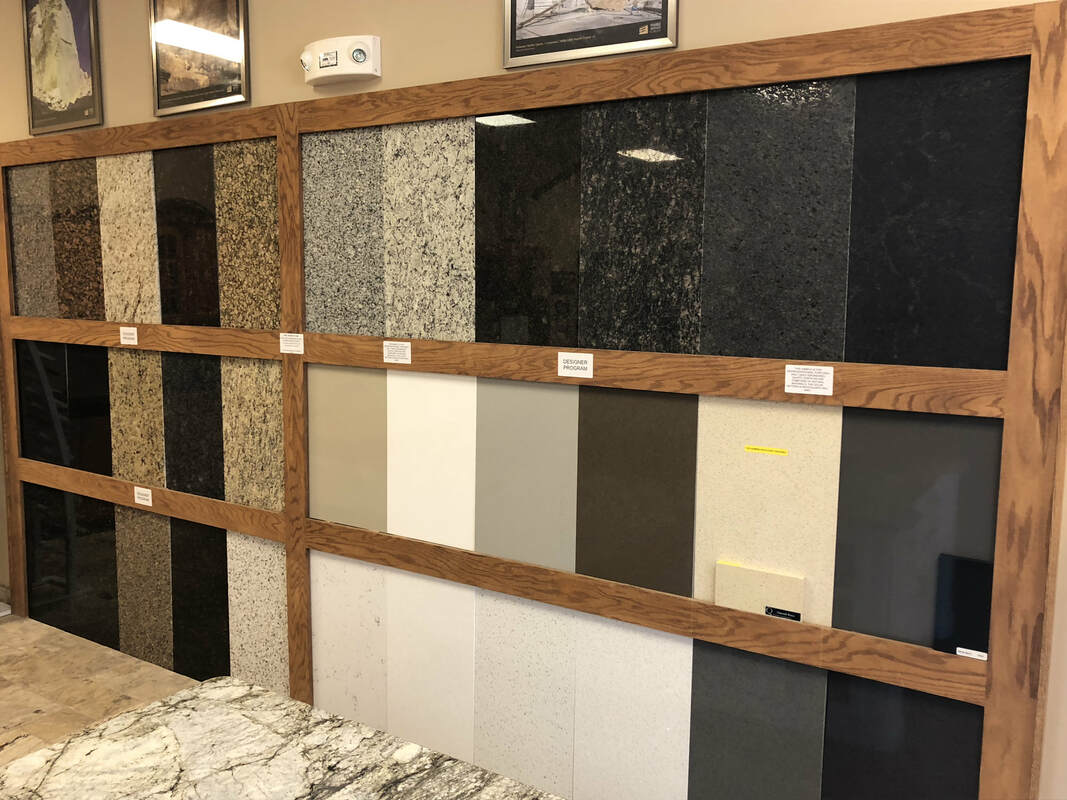Which Stone is Best for Outdoor Countertops?

While natural stones are a great choice for outdoor countertops, the selection process isn’t quite as simple as indoor counters.
An outdoor kitchen is going to be exposed to a variety of weather conditions that aren’t a problem indoors. In addition to extreme temperature changes, most outdoor kitchens are subject to some amount of moisture and direct sunlight that can damage natural stone. This limits your material choice a bit, but for many people the beauty and durability of natural stone cannot be matched.
You’ll want to select non-porous stone for outdoor countertops because they do not absorb moisture. In most stones, moisture will cause stains and discolorations. Marble is particularly porous and not suggested for outdoor use. Quartz is non-porous, but the process used to color and seal this engineered stone can fade and discolor significantly in direct sunlight.
While marble and quartz aren’t great for outdoor countertops, there are two natural stones that work well outside, Soapstone and Granite.
Soapstone Countertops
This is a durable stone that weathers naturally over time. It’s a softer material than granite or quartz, so scratches are more common. This however is part of soapstones charm. Imperfections and changes in color add character to the stone over time.
Soapstone does not require sealing, but regularly cleaning and mineral oil application will help soapstone appear darker and add contrast to the natural colors.
Soapstone can handle extreme temperatures, including freezing and thawing. Direct sunlight will not damage the stone, but expect color changes over time.
Because soapstone is non-porous, rain, bird droppings, and dirt will not stain the countertop.
Granite Countertops
Granite is arguably the best choice for an outdoor countertop. Granite is very durable, and when properly maintained it is not easily stained by moisture or sunlight.
While granite does require sealing periodically, it is relatively easy to maintain. Sealing frequency will vary depending on the type of sealer used, and how much abuse the countertop gets, but expect to reseal about once a year. Your countertop installer will provide more specific information about sealing and maintenance.
Granite is harder than soapstone, so you won’t experience natural wearing over time. In fact, if you keep the countertop properly sealed, it should maintain its original color and strength for many years.
In addition to being able to withstand the weather and direct sunlight, granite countertops provide excellent heat tolerance, which is great for outdoor cooking.
Both soapstone and granite are available in a variety of colors. Soapstone tends to have a more rustic look compared to the more modern or elegant feel of granite.
If you’re creating an outdoor kitchen or bar, visit our Wichita showroom to get some ideas. Or call us at 316-946-0530. to learn more about which countertop material might be right for your project.

